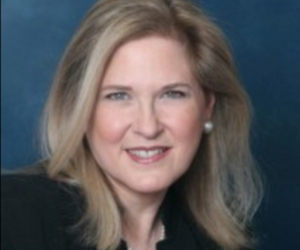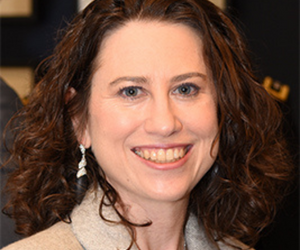Breast Cancer: Don’t Over diagnose, Do Improve Lifestyle
Avoid Overdiagnosis
When you screen a healthy population for breast cancer, you’re going to get over-diagnosis. This has become particularly evident. As screening practices switched from film-based mammography to digital mammography, we now can detect more small lesions. Only some of those small lesions that we are now detecting will grow into aggressive cancers. For 10-30% of the cases we find a lesion, we don’t necessarily need to cut it out or radiate it; we could follow it to see if it increases in size in a short period of time.
Overdiagnosis is particularly important for older women to consider. We don’t want the elderly woman to feel traumatized by being treated for an indolent lesion; especially when it will not prolong her life and increase her anxiety. Once she’s had lumpectomy and radiation for an indolent lesion, she’ll have follow-up tests for the rest of her life. Overdiagnosis means that she’s likely to endure all this for a condition that might have caused her very little trouble the rest of her life.
To Avoid Overdiagnosis, Only Do Risk-Based Screening
At the Breast Cancer Surveillance Consortium, we’ve developed the free BCSC Risk Calculator. It can be accessed from https://tools.bcsc-scc.org/bc5yearrisk/calculator.htm and downloaded . It’s also available for download to your iPhone from https://itunes.apple.com/us/app/bcsc-risk-calculator/id919034661?mt=8.
One of the goals of the Risk Calculator is to encourage health care providers to assess a woman’s risk before deciding to screen for breast cancer. We now know that it’s common for women to over- or underestimate breast cancer risk. With this tool, health care providers will have a much more accurate picture of a woman’s individual risk; they can then delay screening to a later age and/or screen those who are at low risk for breast cancer less often.
Instead of merely going by age, we can now also take into account other aspects of the patient. We can consider the individual’s ethnicity, breast density, and whether she’s had a first-degree relative with breast cancer. Another thing we could consider is whether she’s had a breast biopsy, and if so, the breast biopsy outcome. The Risk Calculator is free, simple, easy-to-use, and can decrease the risk of overdiagnosis by tailoring screening to a woman’s risk of breast cancer.
We Need a New Paradigm for Responding to Small Lesions
As it is, all small lesions are biopsied to determine if they are cancer. However, some lesions put women at risk for breast cancer, but are not themselves cancer. In the same sense that moderate hypertension is a risk factor for stroke, but hypertension is a condition, not a disease. Whether it’s a small lesion or moderate hypertension, the symptoms bear watching, but they’re symptoms, not the disease itself that requires aggressive treatment. Research is underway to monitor small lesions rather than removing all of them.
Lifestyle Modifications are Important for preventing Breast Cancer
The data are clear: if a woman is overweight or obese and reduces her weight, she’ll reduce her risk of breast cancer.
The data are also clear that exercise is important for risk reduction. She needs to be physically active for at least 20 or 30 minutes for 5 to 7 days per week. A brisk walk is good, taking the stairs, and vigorous housework such as gardening, vacuuming or sweeping will also help. Her goal should be movement as opposed to just sitting.
As for diet, there aren’t enough large-scale diet studies to allow us to say which diet is most protective against breast cancer. A Mediterranean Diet, one that’s high in fruits, vegetables, whole grains, legumes, and nuts, seems to hold some promise, but we aren’t in a position right now to be sure. What we do know is: if your patient is overweight, she needs to consume fewer calories, and whether she’s overweight or not, she needs to exercise 5 to 7 days a week.
Search Articles
Latest Articles
Architect of Her Life
https://medium.com/@ken.roman_84029/architect-of-her-life-78e38401de71 Publication –medium.com
Meet Clara Kaluderovic
https://canvasrebel.com/meet-clara-kaluderovic Publication – canvasrebel.com
New Jersey drone sightings expose America’s battlefield blind spot
https://www.washingtontimes.com/news/2024/dec/23/new-jersey-drone-sightings-expose-america-battlefi Publication –washingtontimes.com
She Brews Hope and Resilience Even During War
https://foreignpress.org/journalism-resources/she-brews-hope-and-resilience-even-during-war Publication –foreignpress.org
Subscribe to Updates
About Author

Mitzi Perdue is the widow of the poultry magnate, Frank Perdue. She’s the author of How To Make Your Family Business Last and 52 Tips to Combat Human Trafficking. Contact her at www.MitziPerdue.com
All Articles
The Ultimate Soft Skill for Management: EMPATHY
The Ultimate Soft Skill for Management: EMPATHY Want a surprising statistic? (For a hint, it has to do with soft skills.) Eighty-five percent of management success depends on people skills. Cynthia W. Lett, the woman who gives this statistic, has been advising...
Family Businesses Can Learn from Military History
Family Businesses Can Learn from Military HistoryMilitary Culture My late husband was fascinated by military culture, and you could often find him reading the biographies of famous generals. His fascination stemmed from his interest in human motivation. He often...
Family Quarrels & Mediation–Pull Back from the Brink
Family Quarrels & Mediation– Pull Back from the BrinkI hope you’re not reading this because you’re up against a family quarrel. The pain of a family quarrel can permeate every hour of every day. The fallout has the potential of threatening everything we all hold...
What Family Businesses Can Learn From Military Culture
What Family Businesses Can Learn From Military CultureFor longevity and having an extraordinarily strong culture, few organizations can match our military. The military culture of our armed services began before the founding of our country, and it survives to this...
Four Sure-Fire Ways to Stand out in Your Career
Four Sure-Fire Ways to Stand Out in Your CareerA young man in a class I was addressing at a Columbia University business class asked me a poignant question. “How do I stand out in my career?” He was in his mid-twenties, professionally dressed, and his body language...
Family Stories Keep Families Together
Family Stories Keep Families TogetherJackie Kennedy Onassis once said: “If your children turn out well, nothing else matters. If your children turn out badly, nothing else matters.” Having the young people in your life turn out well is as important as anything else...






